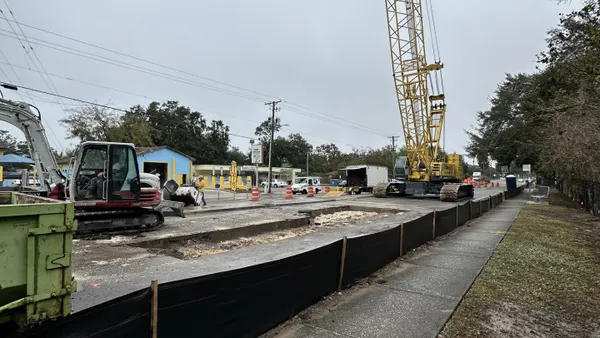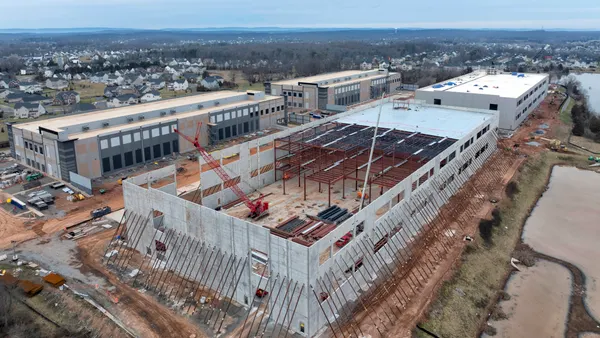Dive Brief:
- The U.S. Department of Transportation announced it will give 41 projects a total of $487.1 million as part of its latest round of TIGER (Transportation Investment Generating Economic Recovery) grant funding, according to Engineering News-Record.
- Three projects won the maximum TIGER grant award amount of $25 million. One of those was the $134 million SR 189 Flyover project in Arizona, which will separate commercial and non-commercial traffic near the U.S.-Mexico border. Another is the $288 million Lincoln South Beltway project in Lincoln, Neb., which will allow freight traffic to bypass the city. The third is the $80 million Northstar Boulevard project in Loudon County, Va., which will finish a connection to U.S. route 50 via a controlled access highway.
- Congress requires that at least 20% of TIGER grant money go toward rural initiatives, but such projects represent a record 64% of this latest, ninth round of the program. TIGER grants were de-funded in the president's fiscal 2018 budget request, but an industry source told ENR that the program was in line for $500 million as part of the omnibus spending package, which should be introduced later this month.
Dive Insight:
Although the president tried to scuttle TIGER grants, some critics of the USDOT's project selections assert it is obvious the president influenced award decisions because they were mostly highway and bridge projects. According to Streetsblog USA, only 3.8% of the money will fund transit projects and only 18% will pay for pedestrian and bike improvements.
As to a wider infrastructure funding program, House Majority Leader Paul Ryan (R-Wis.) told a group gathered at a Home Depot in Atlanta earlier this month the omnibus package that will reportedly include TIGER grant funding was a "down payment" on a larger infrastructure plan, presumably something resembling the $1.5 trillion proposal the president unveiled after his January State of the Union address. However, Ryan added that any infrastructure initiative would be divided into five or six bills instead of attempting one big push, which is a different approach than other lawmakers have said Congress is taking in writing up an infrastructure bill.
A barrier to the implementation of a significant infrastructure program is the inability of lawmakers to agree on a funding source. For a while, it looked like the pendulum was swinging toward a significant gas-tax hike, but Ryan said that was off the table. Some Democrats, who have developed their own $1 trillion infrastructure plan, want to roll back some provisions of last fall's tax reform bill and use the resulting revenue to fund their initiative.










